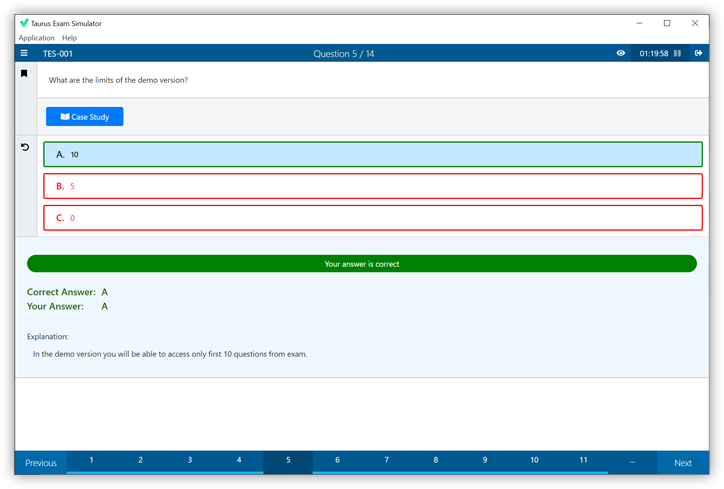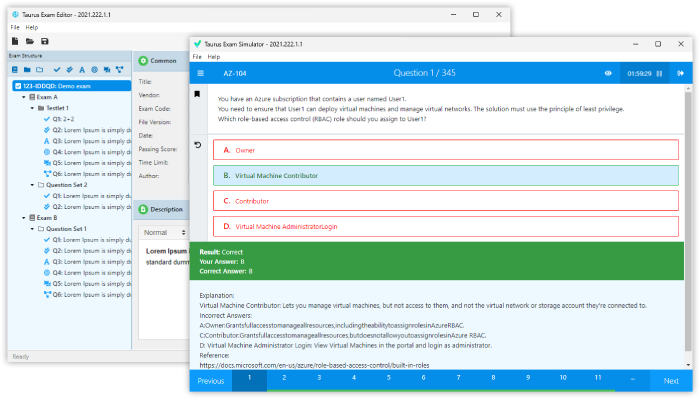Download Oracle.1z0-809.Prep4Sure.2018-10-04.52q.tqb
| Vendor: | Oracle |
| Exam Code: | 1z0-809 |
| Exam Name: | Java SE 8 Programmer II |
| Date: | Oct 04, 2018 |
| File Size: | 367 KB |
Demo Questions
Question 1
Given:
class Bird {
public void fly () { System.out.print(“Can fly”); }
}
class Penguin extends Bird {
public void fly () { System.out.print(“Cannot fly”); }
}
and the code fragment:
class Birdie {
public static void main (String [ ] args) {
fly( ( ) -> new Bird ( ));
fly (Penguin : : new);
}
/* line n1 */
}
Which code fragment, when inserted at line n1, enables the Birdie class to compile?
- static void fly (Consumer<Bird> bird) {bird :: fly ();}
- static void fly (Consumer<? extends Bird> bird) {bird.accept( ) fly ();}
- static void fly (Supplier<Bird> bird) {bird.get( ) fly ();}
- static void fly (Supplier<? extends Bird> bird) {LOST
Correct answer: C
Question 2
Given:
1. abstract class Shape {
2. Shape ( ) { System.out.println (“Shape”); }
3. protected void area ( ) { System.out.println (“Shape”); }
4. }
5.
6. class Square extends Shape {
7. int side;
8. Square int side {
9. /* insert code here */
10. this.side = side;
11. }
12. public void area ( ) { System.out.println (“Square”); }
13. }
14. class Rectangle extends Square {
15. int len, br;
16. Rectangle (int x, int y) {
17. /* insert code here */
18. len = x, br = y;
19. }
20. void area ( ) { System.out.println (“Rectangle”); }
21. }
Which two modifications enable the code to compile?
- At line 1, remove abstract
- At line 9, insert super ( );
- At line 12, remove public
- At line 17, insert super (x);
- At line 17, insert super (); super.side = x;
- At line 20, use public void area ( ) {
Correct answer: DF
Question 3
Given:
public class Foo<K, V> {
private K key;
private V value;
public Foo (K key, V value) (this.key = key; this value = value;)
public static <T> Foo<T, T> twice (T value) (return new Foo<T, T> (value, value); )
public K getKey () (return key;)
public V getValue () (return value;)
}
Which option fails?
- Foo<String, Integer> mark = new Foo<String, Integer> (“Steve”, 100););
- Foo<String, String> pair = Foo.<String>twice (“Hello World!”);
- Foo percentage = new Foo(97, 32);
- Foo<String, String> grade = new Foo <> (“John”, “A”);
Correct answer: C






